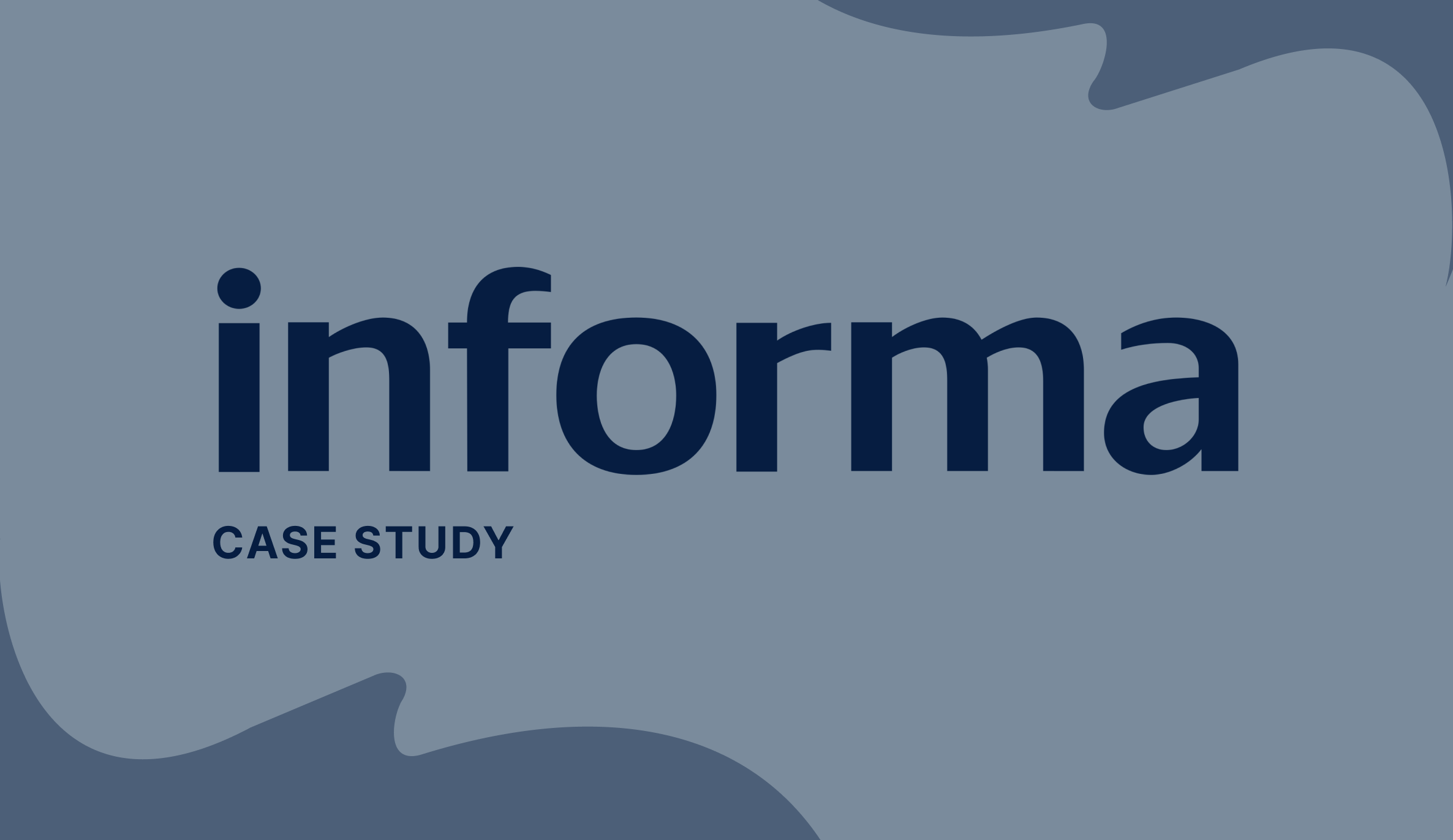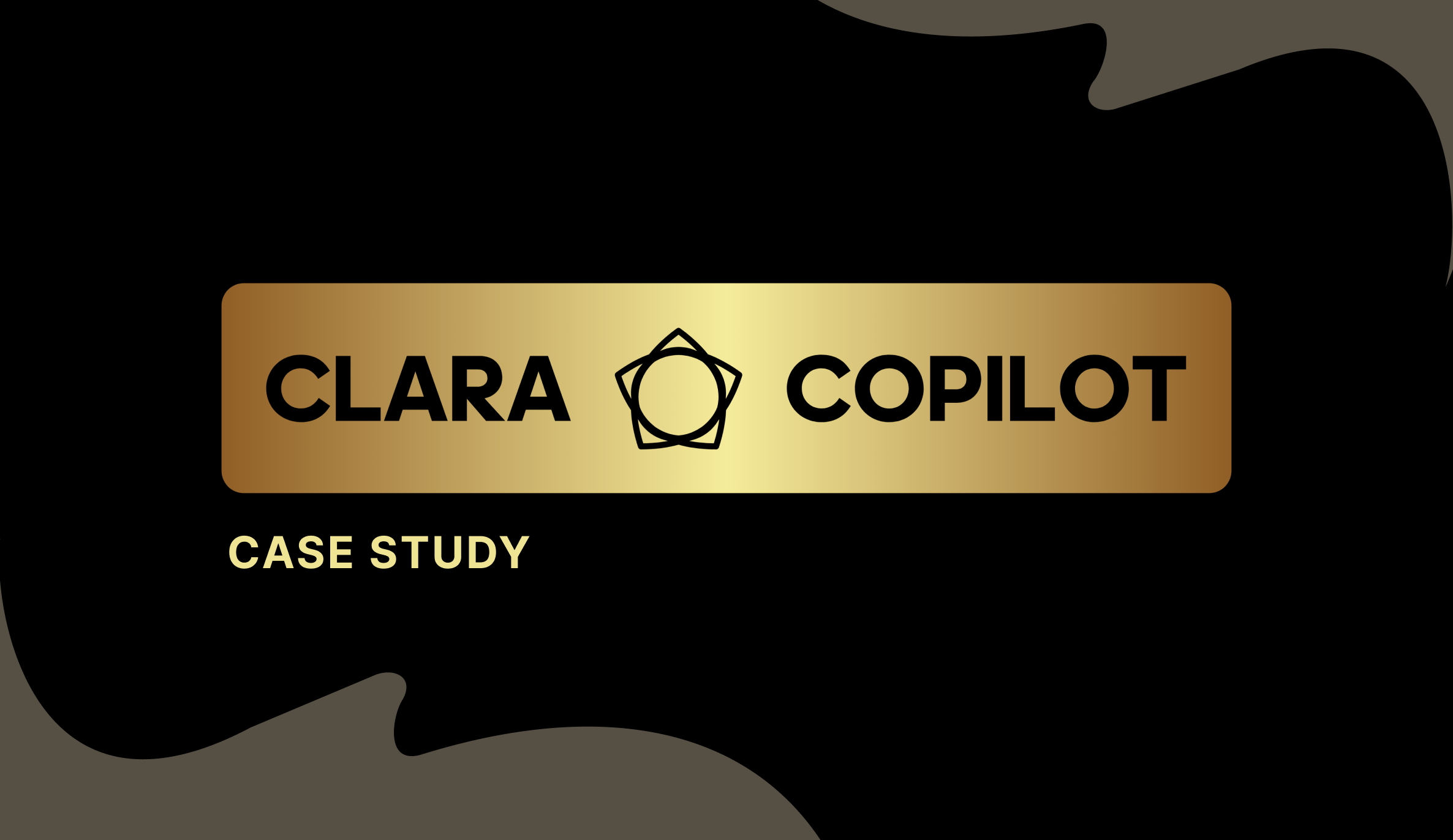Key results
- Cut AWS account provisioning time by 90%+, from two weeks to just over one day
- Unified over 170 AWS accounts under a centralized governance model
- Reduced cloud costs by migrating all workloads to containers via ECS and EKS
“Gruntwork gave us secure, production-ready infrastructure modules and pipelines right out of the box. That let us build a great developer experience without needing to hire an army of DevOps engineers.”
– Andrew Deering, Head of Cloud Platforms at Informa
Informa Group is a global leader in business-to-business events, academic publishing, and market intelligence. The company operates across more than 30 countries and has grown rapidly through a mix of organic expansion and acquisitions. As their business scaled, so did the complexity of their cloud infrastructure.
Andrew Deering, Head of Cloud Platforms at Informa, has been with the company for nearly a decade. His team is responsible for building and managing the Unity platform, Informa’s centralized cloud infrastructure and governance platform. Unity was launched as part of a company-wide initiative to ensure that cloud environments were efficient, secure, cost-effective, and well-managed. Deering’s mandate was clear: build a platform that delivers velocity and security at scale without reinventing the wheel.
When Deering took over as head of DevOps, Informa had accumulated over 170 AWS accounts, many inherited through acquisitions. These accounts were often unmanaged, lacking any common standards or security best practices. “It was the wild west,” he explained. “People were spinning up whatever they wanted. We had no idea who owned what. There was VPC peering everywhere. CrowdStrike reports had tens of thousands of entries, most of them from ephemeral machines that didn’t even exist anymore. I felt like I was going to be chasing rabbits for the rest of my life."
From chaos to consistency: Unity brings order to cloud operations
Informa’s acquisition-heavy growth had created a sprawling, inconsistent cloud footprint. Teams provisioned infrastructure manually, often using spreadsheets for IP address block assignments. IAM access required manual approvals. Environments drifted. Infrastructure changes had no audit trail. “Just vending an account could take two weeks,” said Deering. “You had to wait on networking, IAM, and manual deployments. There were a lot of dependencies and a lot of friction.”
Deering and his team envisioned Unity as the solution: a centralized platform that could automate AWS account provisioning, enforce compliance guardrails, and give developers a consistent, secure, Git-based workflow. But building the full stack of infrastructure modules, pipelines, and security patterns from scratch would take years.
That’s where Gruntwork came in. “We couldn’t hire an army of DevOps engineers to write and maintain infrastructure modules,” said Deering. “Gruntwork had already built and battle-tested what we needed.”
With Gruntwork, Informa gained access to a comprehensive library of production-grade Terraform modules covering networking, IAM, monitoring, compute, container orchestration, and more. These modules became the backbone of Unity, allowing Informa to standardize infrastructure across teams while avoiding duplication and delays.
Cutting provisioning time and enabling developer self-service
Informa adopted Gruntwork’s Account Factory to automate account provisioning with built-in security and network controls. What used to take two weeks now takes just over a day — and results in a fully governed, production-ready AWS account.
They also adopted Gruntwork Pipelines, enabling teams to deploy infrastructure and application code through a consistent, auditable CI/CD process. “Unity is infrastructure-as-code only,” said Deering. “There’s a learning curve for new teams, but once they get the hang of it, they absolutely love it. They can move fast with confidence.”
That speed has translated into more frequent deploys and faster product cycles. Previously, teams had to follow multi-step runbooks and schedule deployments days in advance. Today, they simply commit to Git and let the pipeline handle the rest. “We’ve gone from rigid, manual deployments to an environment where teams can experiment safely and ship faster,” said Deering.
This consistency also allowed Informa to adopt a container-first architecture, encouraging teams to use ECS or EKS instead of EC2. “We don’t run EC2 instances in Unity,” Deering said. “That shift alone has driven major cost savings.” Informa is now planning further efficiencies, including automatically turning off lower environments outside business hours.
“With Gruntwork, we’ve gone from rigid, manual deployments to an environment where teams can experiment safely and ship faster.”
– Andrew Deering, Head of Cloud Platforms at Informa
Building organizational muscle for infrastructure as code
Unity is now mandatory for all new workloads at Informa. Older workloads are migrated into a Unity-managed DMZ before being fully re-platformed. Every new team inherits the same secure-by-default account structure, networking configuration, and deployment process.
While Unity provides a strong technical foundation, Deering emphasizes the cultural shift required to adopt it. Many newly acquired teams had no infrastructure-as-code experience, and Unity’s opinionated approach introduced a learning curve. “We’re building that muscle memory,” he said. “It’s important that people know: if you work at Informa, you’ll be working with Unity — and it’s going to be the same process no matter which team you’re on.”
To support onboarding, the platform team has created bite-sized training videos, offered brown-bag sessions, and monitored FAQs via internal channels. Gruntwork has provided support throughout. “They’ve been top-notch partners,” said Deering.
Setting the stage for even bigger impact
Unity is now the backbone of Informa’s cloud infrastructure. It has improved visibility, reduced costs, and accelerated developer productivity across the organization. All new workloads must use Unity. Teams that don’t use it risk slower time-to-market, inconsistent architectures, and limited platform support. “You’re on your own,” said Deering. “And you’re probably going to end up rebuilding what we already provide.”
As Unity expands into Azure and other clouds, Deering sees even greater potential ahead. A Unity Lite version is already rolling out to provide SaaS governance in Azure. Multi-cloud support is on the horizon.
“I’d love to see a future where we can migrate workloads between clouds based on real-time pricing and performance signals,” said Deering. “And with Gruntwork, we know we’re building on something solid enough to support that vision.”
“Unity is infrastructure-as-code only. There’s a learning curve for new teams, but Gruntwork’s modules help flatten that curve. Once they get it, they absolutely love it and can move fast with confidence.”
– Andrew Deering, Head of Cloud Platforms at Informa



- No-nonsense DevOps insights
- Expert guidance
- Latest trends on IaC, automation, and DevOps
- Real-world best practices




